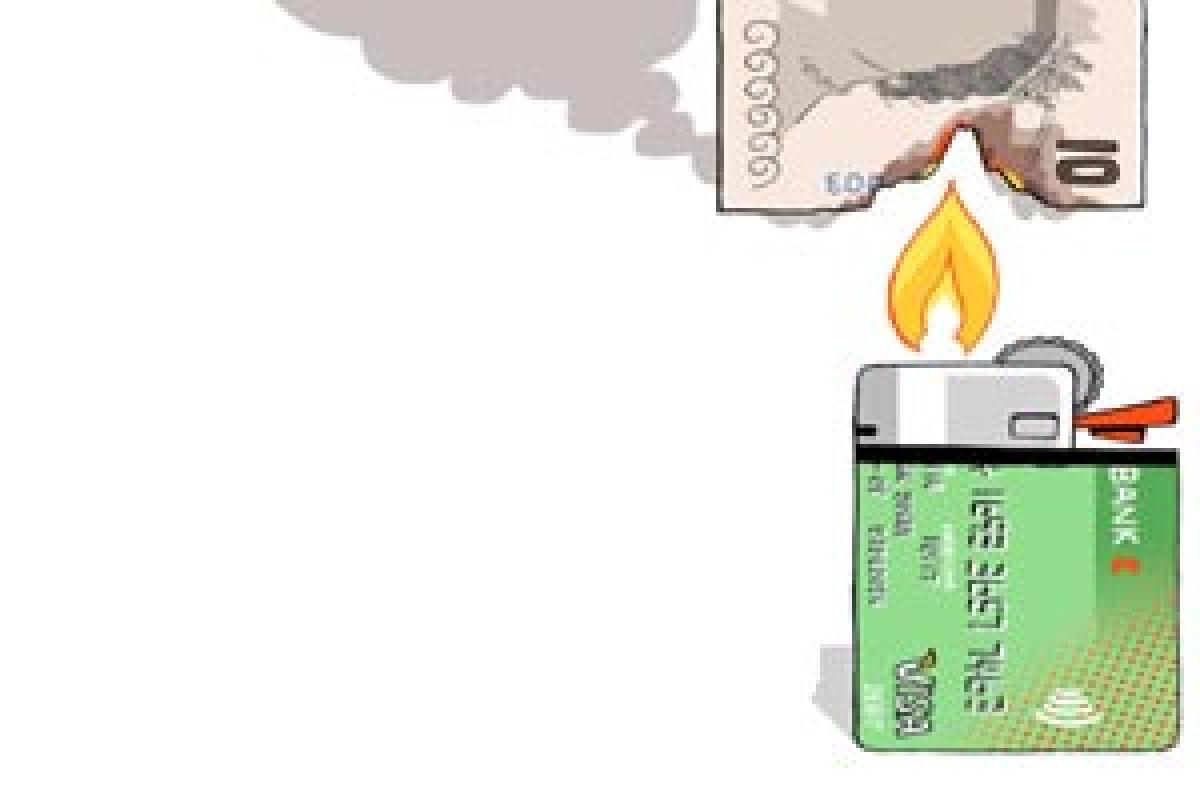Why is this war on cash?

Terrorists are no longer public enemies number one nor are the drug lords, human traffickers, arms dealers, cyber terrorists or any other do-badder.
“Terrorists are no longer public enemies number one nor are the drug lords, human traffickers, arms dealers, cyber terrorists or any other do-badder. Today, the biggest threat to global peace and security is physical cash, a means of exchange that has flourished for over 1000 years but which now stands accused of being the world’s biggest enabler of criminality,” says Don Quijones, Spain & Mexico, editor at the US newspaper Wolf Street.
“Banks, government, credit card companies and fintech evangelists all want us to believe a cashless future is inevitable and good, but this is not frictionless utopia,” says Brett Scott, campaigner and UK broker adding “and it’s time to fight back”. The death of cash is death of privacy. The G-7 and G-20 prodded by bankers are strangely promoting going cashless.
On June 9, 2015 the Google chairman, top global bankers and G-7 leaders met in Austria to hasten it. Why is this war on cash? Cash serves as a means of exchange in which the relevant rent seekers (banks, credit card companies and tech firms) are left out of the equation, unable to get commissions, fees and collect the treasure of consumer data that comes with electronic payments. This apart it helps the intermediaries i.e. the banks earn trillions as charges for “facilitating” transactions, which could have been done for free in cash deals.
In the West, non-cash is seen as a move of the multi-national corporations (MNCs) to control the citizens, businesses and governments. Once they succeed they can keep the common man in awe of denial of access to their own money. The laws have already been used extensively to seize cash from the US nationals. Any seizure can be done on suspicion is known as “policing for profit,’ which is fully endorsed by the US government.
Trusting the banks or Visa type organisations may be dangerous. They can manipulate election results, organise coups or create wrong perceptions through propaganda. The recent tirade against black money in India may be one. The post-November 8 income tax raids yielded over Rs 3,100 crore.
If assesses move the court at least half of it would be termed non-black and returned to them. But it created euphoria. Even the income tax declaration (IDS) 2016 has flaws. From initial estimates of Rs 67,000 crore declared, within a few days it came down to Rs 55,000 crore. At least Rs 12,000 crore declarations were found to be fake rivals allegedly filed each other’s false statements. The government got a mere Rs 3,000 crore tax from these against expected Rs 30,000 crore.
The I-T department got wide publicity for its raid raj. But if their figures are taken into account (Rs 55,000 plus 3100 crore) and even if it is trebled, black money would not be more than Rs 1.74 lakh crore – almost equal to the I-T government receives. The operation demonetisation cost the nation not less than Rs 30,000 crore in junking Rs 500 and Rs 1000 notes, and printing new currency. This apart there are losses of over five lakh jobs, millions of man-hours, industrial production, closures and troubles at banks.
Are Indians victim of global MNC propaganda? All over the planet, governments are starting to place restrictions on the use of cash for “security reasons.” Citizens are told other forms of payment are much easier for governments to track. The use of cash is considered to be a “suspicious activity” all by itself.
Cashless society is a euphemism for the “ask-your-banks-for-permission-to-pay.” Cashless is only the invisible digital bank ledger. Rather than an exchange occurring directly between the seller and buyer, it takes the form of intermediaries. In a cashless society, people would have no choice but to conform to the intermediaries, giving them a lot of power, tradable data about the one’s economic life and power to extort.
The anti-cash crusaders offer various reasons for banning cash, but they all share a common distrust of free markets and a desire to give bureaucrats more control over people. The World Bank estimates that there are two billion adults without bank accounts, and even those who do have these still often rely upon the informal flexibility of cash for everyday transactions.
The WB does not say cash is criminal. So why give it up? Unfortunately, after power over food, crops and farmers through genetic engineering, the MNCs and large banks are now eyeing and conspiring to enslave people through the cashless plot.
By Shivaji Sarkar

